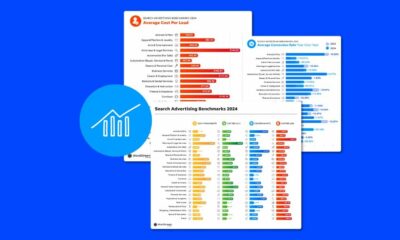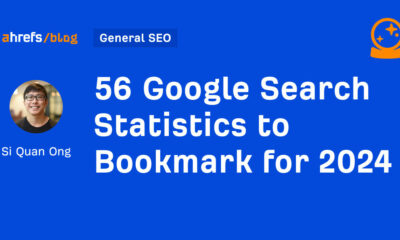The new app is called watchGPT and as I tipped off already, it gives you access to ChatGPT from your Apple Watch. Now the $10,000 question (or more accurately the $3.99 question, as that is the one-time cost of the app) is why having ChatGPT on your wrist is remotely necessary, so let’s dive into what exactly the app can do.
NEWS
Publishers Report a Spam Exploit in Google

A WebmasterWorld discussion brought to light a manipulative spam technique that was reported to be flourishing in Google. It involves competitors creating fake review sites to rank in Google. These review sites not only promote their own products, a publisher is reporting that the fake sites are also saying bad things and giving poor reviews.
The spam technique consists of creating fake product review sites created by the sellers of the products that are being reviewed. It was reported that some of the sites spread negative information about competitor products.
WebmasterWorld Member Selen stated:
“Several competitors have created “review” websites where they feature a dozen of their own sister sites from the same business niche. These sites have an order form that is processed by the same (their own) company. To make it look “legit,” they added a couple of real competitors to the “review list” (with lower “ratings” of course).
They wrote 100% fake reviews of their own services and attributed a scale from 1-10. Top 10 sites have “rating” between 9.1 and 10 (and they own all of them). The “ratings” are 100% fake and bogus.
Google happily shows domains and fake ratings in the answer box on a very competitive term (eg. best {service}). It’s been going on for years, but now their dishonest efforts pay even more.”
Another member named samwest responded:
“…blackhat still pays and Google is still none the wiser.”
WebmasterWorld member Milchan added:
“my niche is dominated now by one competitor that does exactly what you are describing and I know for a fact that google has been made aware of this, as well as all the fake false google reviews they made and yet chose to not take any action.
They have lots of doorway page sites (which is specifically mentioned against something google will ban you for in their guidelines), they have blog review/tips sites that do nothing but favor their own products and even talk down and scare monger to the point of slander other companies…
They even have one site that purports to be an official site for something when it is not in any way shape or form an official site… but (offer)… top 5 recommendation… all of which lead to YMYL sites that they own.”
Google Webmaster Help Forum Reports
These are not isolated discussions at WebmasterWorld. There are multiple reports in Google’s official Webmaster Help Forums, too.
For example there is one discussion titled, Fake Review Websites Are Created For Self Promotion, Stating Competitors As Scam, Hampering Business
This is what the publisher reported:
“Our competitor has created his self promoting 5 websites, mentioning every other strong competitor as SCAM, driving all traffic and sales to his websites & they deliver poor quality work, so all face failure. “
Some major brands create websites that are standalone blogs and communities designed to reach out to potential customers. But creating a site for the purpose of outranking competitors and saying bad things about those competitors have some people upset at Google for ranking those sites.
Can Google Catch Fake Review Site Spam?
A careful competitor would very likely hide their domain registration information. How would Google identify a fake review spammer, by their inbound links? Could statistical analysis of review ratings reveal abnormal review patterns?
This isn’t a new problem. There are discussions in Google’s own Webmaster Help Forum going back years and years. Seems like something that Google might want to take a closer look at.
Read the WebmasterWorld discussion here
https://www.webmasterworld.com/google/4965610-9-30.htm
Facebook Faces Yet Another Outage: Platform Encounters Technical Issues Again

Uppdated: It seems that today’s issues with Facebook haven’t affected as many users as the last time. A smaller group of people appears to be impacted this time around, which is a relief compared to the larger incident before. Nevertheless, it’s still frustrating for those affected, and hopefully, the issues will be resolved soon by the Facebook team.
Facebook had another problem today (March 20, 2024). According to Downdetector, a website that shows when other websites are not working, many people had trouble using Facebook.
This isn’t the first time Facebook has had issues. Just a little while ago, there was another problem that stopped people from using the site. Today, when people tried to use Facebook, it didn’t work like it should. People couldn’t see their friends’ posts, and sometimes the website wouldn’t even load.
Downdetector, which watches out for problems on websites, showed that lots of people were having trouble with Facebook. People from all over the world said they couldn’t use the site, and they were not happy about it.
When websites like Facebook have problems, it affects a lot of people. It’s not just about not being able to see posts or chat with friends. It can also impact businesses that use Facebook to reach customers.
Since Facebook owns Messenger and Instagram, the problems with Facebook also meant that people had trouble using these apps. It made the situation even more frustrating for many users, who rely on these apps to stay connected with others.
During this recent problem, one thing is obvious: the internet is always changing, and even big websites like Facebook can have problems. While people wait for Facebook to fix the issue, it shows us how easily things online can go wrong. It’s a good reminder that we should have backup plans for staying connected online, just in case something like this happens again.
NEWS
We asked ChatGPT what will be Google (GOOG) stock price for 2030

Investors who have invested in Alphabet Inc. (NASDAQ: GOOG) stock have reaped significant benefits from the company’s robust financial performance over the last five years. Google’s dominance in the online advertising market has been a key driver of the company’s consistent revenue growth and impressive profit margins.
In addition, Google has expanded its operations into related fields such as cloud computing and artificial intelligence. These areas show great promise as future growth drivers, making them increasingly attractive to investors. Notably, Alphabet’s stock price has been rising due to investor interest in the company’s recent initiatives in the fast-developing field of artificial intelligence (AI), adding generative AI features to Gmail and Google Docs.
However, when it comes to predicting the future pricing of a corporation like Google, there are many factors to consider. With this in mind, Finbold turned to the artificial intelligence tool ChatGPT to suggest a likely pricing range for GOOG stock by 2030. Although the tool was unable to give a definitive price range, it did note the following:
“Over the long term, Google has a track record of strong financial performance and has shown an ability to adapt to changing market conditions. As such, it’s reasonable to expect that Google’s stock price may continue to appreciate over time.”
GOOG stock price prediction
While attempting to estimate the price range of future transactions, it is essential to consider a variety of measures in addition to the AI chat tool, which includes deep learning algorithms and stock market experts.
Finbold collected forecasts provided by CoinPriceForecast, a finance prediction tool that utilizes machine self-learning technology, to anticipate Google stock price by the end of 2030 to compare with ChatGPT’s projection.
According to the most recent long-term estimate, which Finbold obtained on March 20, the price of Google will rise beyond $200 in 2030 and touch $247 by the end of the year, which would indicate a 141% gain from today to the end of the year.
Google has been assigned a recommendation of ‘strong buy’ by the majority of analysts working on Wall Street for a more near-term time frame. Significantly, 36 analysts of the 48 have recommended a “strong buy,” while seven people have advocated a “buy.” The remaining five analysts had given a ‘hold’ rating.

The average price projection for Alphabet stock over the last three months has been $125.32; this objective represents a 22.31% upside from its current price. It’s interesting to note that the maximum price forecast for the next year is $160, representing a gain of 56.16% from the stock’s current price of $102.46.
While the outlook for Google stock may be positive, it’s important to keep in mind that some potential challenges and risks could impact its performance, including competition from ChatGPT itself, which could affect Google’s price.
Disclaimer: The content on this site should not be considered investment advice. Investing is speculative. When investing, your capital is at risk.
NEWS
This Apple Watch app brings ChatGPT to your wrist — here’s why you want it

ChatGPT feels like it is everywhere at the moment; the AI-powered tool is rapidly starting to feel like internet connected home devices where you are left wondering if your flower pot really needed Bluetooth. However, after hearing about a new Apple Watch app that brings ChatGPT to your favorite wrist computer, I’m actually convinced this one is worth checking out.
-

 PPC6 days ago
PPC6 days agoHow the TikTok Algorithm Works in 2024 (+9 Ways to Go Viral)
-

 SEO5 days ago
SEO5 days agoHow to Use Keywords for SEO: The Complete Beginner’s Guide
-

 SEO7 days ago
SEO7 days agoBlog Post Checklist: Check All Prior to Hitting “Publish”
-

 MARKETING6 days ago
MARKETING6 days agoHow To Protect Your People and Brand
-

 SEARCHENGINES7 days ago
SEARCHENGINES7 days agoGoogle Started Enforcing The Site Reputation Abuse Policy
-

 MARKETING7 days ago
MARKETING7 days agoElevating Women in SEO for a More Inclusive Industry
-

 PPC7 days ago
PPC7 days agoHow to Brainstorm Business Ideas: 9 Fool-Proof Approaches
-

 MARKETING5 days ago
MARKETING5 days agoThe Ultimate Guide to Email Marketing















